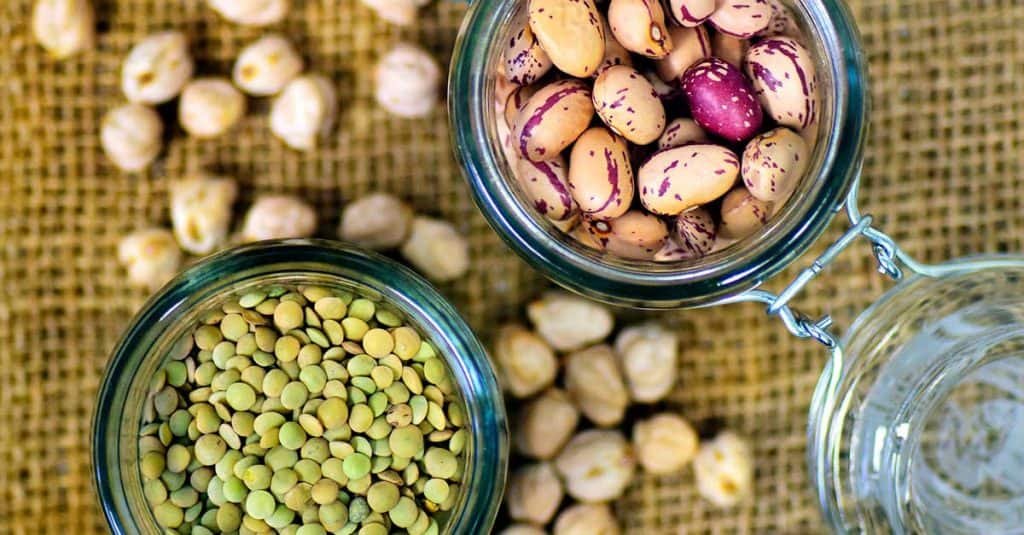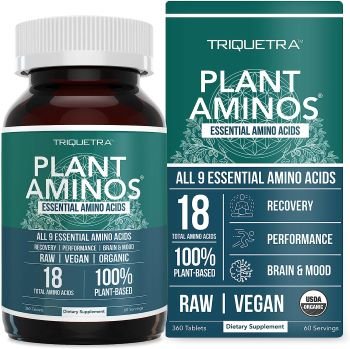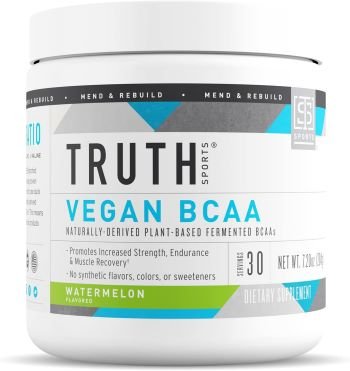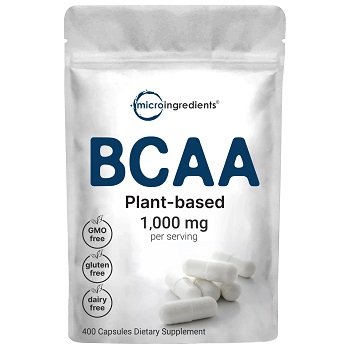The Importance of Amino Acids For Vegans And Vegetarians: What You Need To Know

Are you a vegan or vegetarian? If so, it’s important to understand the significance of amino acids in your diet. Amino acids are the building blocks of proteins and play a crucial role in maintaining optimal health.
While plants do contain amino acids, they may not provide all the necessary ones in sufficient amounts compared to animal sources. This can potentially lead to amino acid deficiencies and various health issues.
But don’t worry! There are ways for vegans and vegetarians to ensure adequate amino acid intake.
One approach is consuming complementary proteins, such as soy, hemp seeds, buckwheat, and quinoa, which together provide a complete range of essential amino acids.
Additionally, considering net nitrogen utilization (NNU), vegetable proteins have lower absorbability compared to meat and dairy proteins.
To overcome these limitations, digestive enzymes or free amino acids can be helpful. Free amino acids have an absorbability rate of 90% or more, ensuring effective protein digestion.
Furthermore, amino acid supplementation like the Complete Aminos formula can enhance cardiac function and collagen production.
In this article about ‘The Importance of Amino Acids For Vegans And Vegetarians: What You Need To Know,’ we will delve deeper into these topics to help you understand how crucial amino acids are for your well-being.
What are amino acids, and why do they matter?

As a vegan or vegetarian, you need to understand that amino acids are the building blocks of life, like the colorful bricks in a vibrant and intricate Lego creation.
They’re essential for your body’s form and function, playing crucial roles in muscle growth, enzyme function, protection, and even happiness and love – through serotonin and dopamine production.
Amino acids are not just for building muscles; they have many other important functions in the body.
- They’re involved in enzyme function, which helps with digestion and metabolism.
- They also play a role in protecting the body from harmful substances by acting as antioxidants.
- Additionally, amino acids are involved in information transfer within the body.
Plants do contain some amino acids, but not all of them and not in sufficient amounts compared to animal sources.
This is why it’s important for vegans and vegetarians to consume complementary proteins to ensure they’re getting adequate amounts of all essential amino acids.
Soy is considered a complete protein and should be eaten daily along with other foods like hemp seeds, buckwheat, and quinoa to ensure a variety of amino acid intake.
It’s important to note that inadequate consumption of amino acids can lead to various health issues such as decreased vitality.
To overcome any potential deficiencies or challenges with incomplete protein consumption, you can consider supplementation with digestive enzymes or free amino acids.
Free amino acids have an absorption rate of 90% or more, making them an efficient way to meet protein requirements.
Between single amino acids and the massive molecules we know as proteins lie structures called peptides. When two amino acids link together, it forms a dipeptide, with “di” denoting two and “peptide” representing any molecule bonding two or more amino acids.
Moving on to a tripeptide, it consists of three amino acids strung together. One well-known representative is L-glutathione, a powerhouse antioxidant that plays a crucial role within our cells.
When a few amino acids are joined together, they form an oligopeptide (“oligo” meaning “a small number”) or simply a peptide.
As the chain grows to more than ten amino acids, the larger molecules are referred to as polypeptides (“poly” indicating “many”).
Proteins fall under the category of polypeptides, generally comprising 50 to 2000 amino acids linked together. The possibilities of different amino acid combinations are virtually endless, contributing to the remarkable diversity, functions, signaling capabilities, complexity, evolution, and integration within living organisms.
Understanding the importance of amino acids as a vegan or vegetarian will help ensure you maintain optimal health and vitality on your chosen diet.
How do amino acids affect mood?
Amino acids, as essential building blocks of proteins, play a crucial role in various biochemical processes in the body, including the production of neurotransmitters that regulate mood.
Here are four ways in which amino acids affect mood:
- Serotonin Boost: Amino acid tryptophan is converted into serotonin, a neurotransmitter known for its positive effects on mood and happiness. Adequate intake of tryptophan-rich foods like tofu, lentils, and quinoa can help maintain optimal serotonin levels.
- Dopamine Regulation: Tyrosine and phenylalanine are two amino acids involved in dopamine synthesis. Dopamine is responsible for feelings of pleasure and motivation. Including foods like almonds, avocados, and pumpkin seeds in your diet can support dopamine production.
- Stress Reduction: Amino acid glycine has been shown to have calming effects on the nervous system by regulating stress hormones. Foods such as seaweed, spinach, and beans are good sources of glycine.
- Energy Balance: Branched-chain amino acids (BCAAs), including leucine, isoleucine, and valine, play a vital role in energy metabolism. They help prevent fatigue by promoting muscle protein synthesis. BCAA-rich foods include soy products like tempeh and edamame.
Providing amino acids in sufficient amounts is required for optimum function of the nervous system and cell-to-cell communication from head to toe.
By ensuring an adequate intake of these key amino acids through a varied plant-based diet or supplementation if necessary, vegans and vegetarians can support their mood stability and overall well-being..
Don’t plants contain amino acids too?
Yes, but do they contain all of them, and do they contain enough?
Let’s take a look at the amino acid break down for 1 cup of egg whites (243 grams) versus 10 ounces of spinach (284 grams) which is thought of to be a protein-rich vegetable.
| Amino Acid | Egg Whites (1 cup / 243g) | Spinach (10 oz / 284g) |
|---|---|---|
| Alanine | 1.46g | 1.53g |
| Arginine | 1.19g | 1.56g |
| Asparagine | 1.78g | N/A* |
| Aspartic Acid | 2.58g | N/A* |
| Cysteine | 0.08g | 0.06g |
| Glutamic Acid | 3.80g | N/A* |
| Glutamine | 4.75g | 1.03g |
| Glycine | 0.97g | 0.56g |
| Histidine | 0.68g | 0.35g |
| Isoleucine | 1.17g | 0.66g |
| Leucine | 2.03g | 0.92g |
| Lysine | 2.22g | 0.82g |
| Methionine | 0.51g | 0.35g |
| Phenylalanine | 1.31g | 0.61g |
| Proline | 0.87g | 0.66g |
| Serine | 1.43g | 0.67g |
| Threonine | 1.31g | 0.46g |
| Tryptophan | 0.22g | 0.10g |
| Tyrosine | 0.92g | 0.37g |
| Valine | 1.48g | 0.78g |
Note: N/A* indicates that the specific amino acid content for spinach was not available in the given data source.
As observed, the amino acid content in egg whites significantly surpasses that of spinach, with approximately 4-5 times higher amounts per gram. To obtain the same amino acid content found in just one cup of egg whites, you would need to consume a substantial amount of spinach – around 5 bags! And that’s without considering factors like absorbability and digestion, which we’ll explore shortly.
Contrary to certain claims made by vegans and vegetarians, fruits and vegetables alone may not suffice in providing a complete range of amino acids. Their amino acid profiles are often incomplete and may lack adequate amounts of essential amino acids.
It’s essential to understand and balance dietary choices to ensure an adequate intake of essential amino acids, especially for individuals following plant-based diets.
Vegan complete protein combinations
To address concerns about protein deficiency, it’s helpful to explore various combinations of complete plant-based proteins that can meet the amino acid needs of individuals on vegan diets.
While it’s true that some plant-based proteins may be lacking in certain essential amino acids, by combining different sources, vegans can ensure they’re getting all the necessary amino acids for optimal health.
- Rice and beans: One example of a vegan complete protein combination is rice and beans. Rice is low in lysine but high in methionine, while beans are low in methionine but high in lysine. By eating these two foods together, you can create a complete protein source that contains all the essential amino acids your body needs.
- Peanut butter on whole wheat bread: Another great combination is peanut butter on whole wheat bread. Peanut butter is rich in methionine but lacks lysine, while whole wheat bread is higher in lysine but lower in methionine. When consumed together, they complement each other to form a complete protein.
- Hummus and Pita: Other examples of vegan complete protein combinations include hummus and pita bread or tofu and quinoa. These pairings provide all the essential amino acids your body requires.
By incorporating these combinations into your diet, you can ensure you’re meeting your amino acid needs as a vegan. Remember that variety is key when it comes to obtaining all the necessary nutrients on a plant-based diet.
For vegans and vegetarians, it’s vital to incorporate complementary protein dishes into their daily meals. By combining foods like soybeans or tofu with rice, or legumes with grains, one can ensure a well-rounded intake of essential amino acids.
While fruits and vegetables are undoubtedly beneficial, they alone may not provide all the necessary amino acids. That’s where foods like beans, grains, nuts, or seeds come in; they are essential components of a balanced plant-based diet.
Soy deserves a special mention as it stands out as a complete protein, containing all the essential amino acids. Including soy, along with other nutrient-rich foods like hemp seeds, buckwheat, and quinoa, is highly recommended for vegans and vegetarians.
Diversity in protein sources is key due to varying amino acid profiles in different plant-based foods. For instance, corn protein has lower lysine content, which is crucial for normal immune function. By combining corn with lysine-rich vegetables like beans, one can ensure a balanced amino acid intake.
Addressing a common misconception, it’s important to understand that vegans and vegetarians should not shy away from consuming enough protein. Protein and amino acids play fundamental roles in basic cellular functions and overall body health, extending far beyond just muscle building.
To meet their dietary needs and maintain a healthy lifestyle, vegans and vegetarians must pay attention to proper protein intake and ensure they cover all essential amino acids through a well-planned, diverse plant-based diet.
Vegan Amino Acid Deficiency Symptoms
Amino acids, crucial building blocks of proteins, are derived from various sources in our diet. However, not all protein sources are created equal when it comes to providing a complete array of amino acids.
Imagine constructing a dam to contain water, ensuring it serves its purpose effectively. To achieve this, 20 different bricks must be precisely positioned in specific places and quantities. If any of these bricks are missing, the dam’s construction comes to a halt until the necessary components are provided.
Similarly, our bodies rely on a balance of all 20 amino acids to function optimally. If any essential amino acid is insufficient in our diet, it can hinder the body’s ability to create proteins and perform essential functions.
Just as a complete set of bricks is needed to build a sturdy dam, a well-rounded protein intake is essential to support overall health and well-being.
Thus, understanding and incorporating diverse protein sources in our diet is vital to ensure we get all the necessary amino acids in adequate supply.
Here are some amino acid deficiency Symptoms you may experience as a vegan:
- Fatigue and weakness: Amino acids play a crucial role in energy production, so if you’re feeling tired all the time, it could be a sign of amino acid deficiency.
- Mood changes and depression: Serotonin and dopamine, which are responsible for happiness and love, rely on adequate levels of amino acids. If you’re experiencing mood swings or feeling down, it could be due to insufficient amino acid intake.
- Hair loss and brittle nails: Amino acids are vital for healthy hair growth and strong nails. If you notice excessive hair loss or your nails becoming weak and brittle, it could be a sign of amino acid deficiency.
- Delayed muscle recovery: Amino acids are essential for muscle repair after exercise. If you find that your muscles take longer than usual to recover from workouts, it could indicate inadequate amino acid consumption.
It’s important to note that these symptoms can also be caused by other factors, as well.
Incorporating complete proteins like soy, hemp seeds, buckwheat, and quinoa into your diet can help ensure sufficient intake of all essential amino acids.
Additionally, considering supplements like Complete Aminos can provide the necessary support for vegans and vegetarians who may have difficulty meeting their protein requirements through food alone.
Being a healthy vegan or strict vegetarian thus requires much knowledge and attention to detail. It is very easy to slip into protein deficiency which can be systemically weakening to the body.
This is so due to yet another obstacle facing the vegan lifestyle, captured in the initials NPU.
Net Protein Utilization – The absorbability problem
Net Protein Utilization, or NPU, refers to how well our bodies absorb and utilize the proteins we consume.
It is an important concept to understand, especially for vegans and vegetarians who may face challenges in meeting their amino acid needs.
When it comes to NPU, animal proteins such as meat and dairy have a higher value of 8-10%, meaning that our bodies can absorb and use a larger percentage of these proteins.
On the other hand, vegetable proteins have a lower NPU of 4-5%. This means that when we rely solely on plant-based sources for our protein intake, our bodies may not be able to absorb as much protein as we need.
The implications of low NPU can be significant.
Insufficient protein intake can lead to a spiral of absorptive insufficiency, where the body struggles to break down and utilize the proteins it receives. This can result in impaired digestion and potential immune reactions.
To overcome this challenge, there are some strategies you can consider. One option is to consume enzymes or free amino acids along with your meals.
Free amino acids have an NNPU of 90% or more, making them highly bioavailable.
Understanding net protein utilization is key for optimizing protein absorption on a vegan or vegetarian diet. By being aware of this information and taking proactive steps towards enhancing your protein intake, you can ensure that you are getting enough absorbable forms of protein with complete amino acid profiles for optimal health and vitality.
☝️ Ever wondered why cows have four stomachs? It’s because of their grazing habits. Since they spend much of their day consuming plant material, their digestive system needs extra power to break down the tough plant fibers and access the proteins within. Moreover, the plant proteins need to be further broken down into individual amino acids, which can then be utilized throughout the cow’s body. The specialized four-chambered stomach of cows allows them to efficiently digest and extract essential nutrients from their plant-based diet, enabling them to thrive on a herbivorous lifestyle.
How to test for amino acid deficiency
Unveiling the signs of amino acid deficiency allows for a deeper understanding of your nutritional status and overall well-being. It’s important to know if you’re lacking in essential amino acids, as they play crucial roles in various bodily functions.
So, how can you test for amino acid deficiency? One way is through a blood test that measures the levels of specific amino acids in your bloodstream. This can provide valuable information about any deficiencies or imbalances.
Another option is a urine test that examines the excretion of amino acids, giving insight into your body’s ability to absorb and utilize them.
In addition to these tests, paying attention to symptoms can also give clues about potential deficiencies. Some common signs of amino acid deficiency include fatigue, muscle weakness, poor concentration, slow recovery from workouts or injuries, hair loss, and skin problems.
If you suspect an amino acid deficiency, it’s best to consult with a healthcare professional who specializes in nutrition or integrative medicine. They can help determine the underlying cause and develop a personalized plan to address any deficiencies.
Remember that proper nutrition is key for vegans and vegetarians to ensure adequate intake of all essential amino acids. By being proactive and addressing any potential deficiencies, you can optimize your health and well-being on your plant-based journey.
Should vegans take amino acid supplements?
Considering the potential challenges of obtaining complete amino acid profiles from plant-based sources, it’s worth exploring whether vegans should consider incorporating amino acid supplements into their diet.
Here are four key points to consider:
- Protein deficiency risk: While plants do contain amino acids, they may not provide all essential amino acids in sufficient amounts. This can put vegans at risk for protein deficiency if they don’t carefully plan their meals to ensure they’re getting all the necessary amino acids.
- Absorption limitations: Plant proteins have lower net nitrogen utilization (NNU) compared to animal proteins, which means they’re less efficiently absorbed by the body. This can make it more challenging for vegans to meet their protein requirements solely through plant-based sources.
- Digestive enzyme support: Plant proteins also require extra digestive enzymes due to their fiber content, which can further hinder protein digestion and absorption. Amino acid supplementation can help overcome these limitations by providing pre-digested free amino acids that are readily absorbable.
- Health benefits: Amino acid supplementation has been shown to enhance cardiac function and collagen production, benefiting both vegans and vegetarians with protein absorption issues or those looking to optimize their overall health.
While it’s possible for vegans to obtain adequate amino acids from plant-based sources with careful planning, considering amino acid supplements as an additional tool may be beneficial for meeting protein requirements and optimizing health outcomes.
Best vegan amino acid supplements
When it comes to finding the best vegan amino acid supplements, there are a few options worth considering.
Plant Aminos Organic Essential Amino Acids is a popular choice, offering a complete blend of essential amino acids for vegans and vegetarians.
Another option is Truth Nutrition Vegan BCAA Powder, which provides branched-chain amino acids to support muscle recovery and growth.
For those who prefer capsules, Micro Ingredients Plant Based BCAA Capsules offer a convenient way to get your amino acids on the go.
Plant Aminos Organic Essential Amino Acids
Introducing Plant Aminos, the perfect solution for vegans and vegetarians seeking organic essential amino acids to support their overall health and performance goals.
These 100% organic plant-based essential amino acids are delivered naturally in a raw whole-food form, making them easily absorbed by the body.
With a combination of Organic Spirulina and Organic Chlorella, Plant Aminos provide a high amino acid density that is four times higher in absorption than whey or soy-based amino acids.
Not only does Plant Aminos contain all nine essential amino acids, including BCAA, but it also offers a total of 18 amino acids. This makes it an ideal choice for recovery, performance, energy, mental function, and mood enhancement. Plus, as a USDA Organic Certified product that is vegan and in raw form, you can trust its quality.
✅ Pros:
- High-quality organic source of essential amino acids
- Vegan & Raw Form
- Tested for over 130+ toxins & contaminants
❌Cons:
- Potential negative side effects related to glutamic acid
- Thiamine deficiency may be an issue for certain individuals with health problems
Truth Nutrition Vegan BCAA Powder
To maximize your workout performance and enhance muscle recovery, look no further than Truth Nutrition Vegan BCAA Powder.
This natural amino acids supplement is fast-acting and provides BCAA energy during and after workouts.
It reduces fatigue, repairs muscles, and increases muscle recovery, promoting enhanced muscular endurance, energy, stamina, and recovery. Whether you’re on a calorie deficit or following a Keto/intermittent eating plan, this product is suitable for you.
What sets Truth Nutrition Vegan BCAA Powder apart is its clean ingredients with no artificial colors, flavors, or sweeteners.
It contains natural, vegan fermented plant-based amino acids that are ideal for promoting lean muscle growth. Trusted and loved by professional athletes worldwide, this supplement undergoes batch testing for potency, purity, safety, and effectiveness.
✅ Pros:
- Promotes enhanced muscular endurance
- Repairs muscles and increases muscle recovery
- Clean ingredients with no artificial additives
❌ Cons:
- May cause headaches for those sensitive to sweetness
Micro Ingredients Plant Based BCAA Capsules
If you’re looking for a convenient and effective way to supplement your amino acid intake, then the Micro Ingredients Plant Based BCAA Capsules are worth considering.
These capsules provide you with a potent dose of essential amino acids in an easy-to-swallow form.
With 1000mg per serving, these capsules offer a generous supply of BCAAs to support muscle growth and recovery.
One of the key advantages of these BCAA capsules is their instantized formula, which allows for better absorption by the body.
Additionally, they are non-GMO and free from additives, preservatives, artificial colors, flavors, soy, fillers, and gluten. This makes them suitable for vegans and vegetarians who prioritize clean and natural supplements.
The Micro Ingredients Plant Based BCAA Capsules have also been third-party lab tested for purity and safety. It’s important to note that while these capsules can be beneficial as part of a well-rounded diet and exercise routine, their statements haven’t been evaluated by the FDA.
✅ Pros:
- Convenient capsule form
- Instantized formula for better absorption
- Suitable for vegans/vegetarians
- No additives or preservatives
- Third-party lab tested
❌ Cons:
- Statements not evaluated by FDA
How to deal with the problem of amino acids and protein digestion
Dealing with the problem of amino acids and protein digestion can be a game-changer for vegans and vegetarians, ensuring optimal health and vitality.
Here are three key points to consider:
- Enhance digestion: Plant proteins require extra enzyme power due to their fiber content, which can make protein breakdown more challenging. However, you can support your digestion by taking digestive enzymes specifically designed to aid in protein digestion. These enzymes help break down proteins into absorbable forms, ensuring that you’re able to extract the necessary amino acids.
- Consider free amino acid supplementation: Free amino acids have an NPU (Net Protein Utilization) of 90% or more, making them highly efficient in meeting your protein requirements. You can consume free amino acids individually for specific benefits or opt for a formula that provides a full spectrum of essential amino acids. Amino acid supplementation has been shown to enhance cardiac function and collagen production.
- Address underlying absorption issues: In some cases, individuals may experience impaired protein digestion due to depleted levels of certain amino acids. This can lead to immune reactions and even leaky gut syndrome. To overcome these limitations, it’s important to ensure that you’re getting enough absorbable forms of protein with complete amino acid profiles through food sources or supplementation.
By addressing the problem of amino acid and protein digestion, you can optimize your nutrient intake as a vegan or vegetarian and promote overall well-being.
Frequently Asked Questions
Bottom Line
In conclusion, by consuming complementary proteins like soy, hemp seeds, buckwheat, and quinoa, you can ensure adequate amino acid intake.
It’s interesting to note that net protein utilization (NPU) is lower for vegetable proteins compared to meat and dairy proteins. To overcome protein digestion limitations, consider using digestive enzymes or free amino acids with an absorbability rate of 90% or more.
READ NEXT



